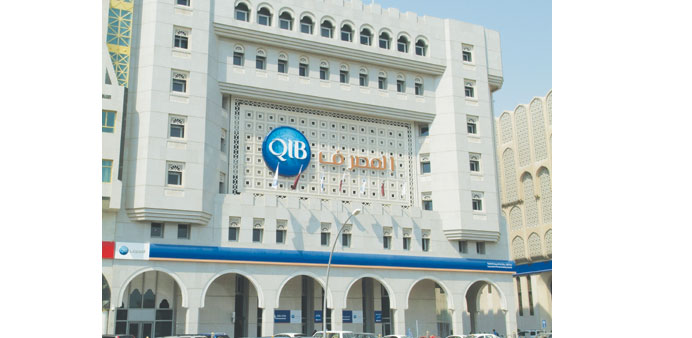Bloomberg/Kuala Lumpur
Qatar Islamic Bank is seeking to increase its investment-banking presence in the Middle East and Asia amid the worst start to a year for Shariah-compliant loans since at least 2006.
Shariah institutions have the expertise and distribution networks to become lead advisers in the mould of Goldman Sachs Group and JPMorgan Chase & Co, Mohamed Azahari Kamil, chief executive officer of the lender’s Malaysian unit Asian Finance Bank Bhd, said in an April 9 interview. QIB is sending the head of its investment division, a former Goldman employee, to meet clients at a seminar in Kuala Lumpur on May 2.
“We want to be the Goldman Sachs of the Middle East,” Azahari said in Kuala Lumpur. “We feel it’s appropriate to move into investment banking in a big way now that we have built up our presence and relationships in Malaysia.”
Asian Finance Bank, established in Kuala Lumpur in 2005, is looking to leverage existing clients after its Shariah-compliant financing business in Malaysia rose more than 50% last year to 1.5bn ringgit ($494mn), he said. Shariah-compliant loans in the Middle East, Europe and Africa have fallen 95% to $287mn in 2013 from the year-earlier period, data compiled by Bloomberg show.
Tamim Hamad al-Kawari, CEO of QInvest, QIB’s investment-banking division, and formerly country head for Qatar at Goldman, will meet representatives from more than 40 Malaysian government-linked firms at the seminar, Azahari said. The group wants to provide funding, structure sukuk and get sovereign-wealth funds to take strategic stakes in Malaysian publicly listed state-linked companies, he said.
QInvest is currently setting up an investment banking joint-venture with EFG-Hermes Holdings of Egypt to provide a pathway into Turkey, Africa, the Middle East and Asia.
EFG-Hermes Holding is awaiting clearance from the Egyptian Financial Supervisory Authority, the Cairo-based company said in a statement to the Egyptian Exchange on April 7. If EFG-Hermes doesn’t get the authority’s approval “in the coming days, the implementation of the partnership agreement will become difficult,” it said.
Qatar, the world’s biggest exporter of liquefied natural gas, is embarking on a $138bn development plan through 2016 in preparation for hosting the 2022 soccer World Cup.
Doha-based QIB’s assets totalled $20.1bn at the end of last year, up from $16bn in 2011, data compiled by Bloomberg show. The lender, which owns 67% of Asian Finance, is projected to post a 35% rise in after-tax profit to $419mn in 2013, according to the average estimate of eight analysts surveyed by Bloomberg News.
International financial assets that comply with Muslim tenets have been growing 19% a year and are projected to reach $2tn in 2014, Ernst & Young forecast in a December report. Malaysia’s Islamic banking assets increased 13.8% last year to a record 494.6bn ringgit, according to the central bank’s annual report issued last month.
“As awareness of Islamic finance increases and with Asia increasingly attracting significant capital flows, the market is big enough for more players,” Raj Mohamad, managing director at Singapore-based consulting company Five Pillars, said in an e-mail last week. “The challenge will be capacity and know-how, which smaller players may lack when stacked against bigger and more established players.”
QInvest Investment Banking is absent from the sukuk market this year after managing two sales last year and none in 2011, data compiled by Bloomberg show. It did one deal in 2010. Worldwide issuance of the notes increased 8% to $13.8bn this year, after reaching a record $46.5bn in 2012. Sales in Malaysia dropped 75% to 10.4bn ringgit.
Islamic bonds sold to international investors returned 0.9% this year, according to the HSBC/Nasdaq Dubai.
Average sukuk yields climbed 23 basis points, or 0.23 percentage point, to 3.15% in April and touched a seven-month high of 3.19% on April 2, according to HSBC. The premium investors demand to hold the securities over the London interbank offered rate, or Libor, widened 10 basis points to 187 basis points.
The Bloomberg Malaysian Sukuk Ex-MYR Index of foreign-currency Islamic debt listed in Malaysia has climbed 0.3% this year. The gauge rose 7% in 2012. The Bloomberg-AIBIM Bursa Malaysia Corporate Sukuk Index increased one% this year to 103.276.
The QIB group has established good relations with Malaysian companies since its incorporation, CEO Azahari said. The group is working on some deals for companies involved in the automotive, oil and gas sectors, he said, declining to elaborate.
“Islamic banks in the Middle East, especially in the Gulf Co-operation Council, have a competitive advantage in their home region,” Montasser Khelifi, a Dubai-based senior manager for global markets at Quantum Investment Bank, said in an interview last week. “When they look out of their home region, it’s natural for them to expand to Asia.”

